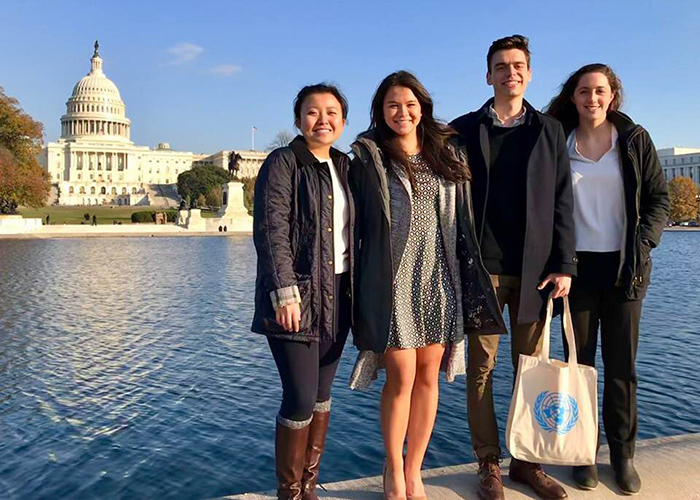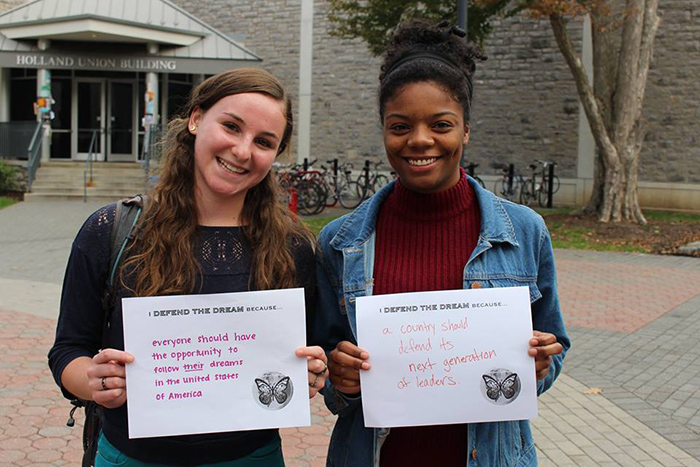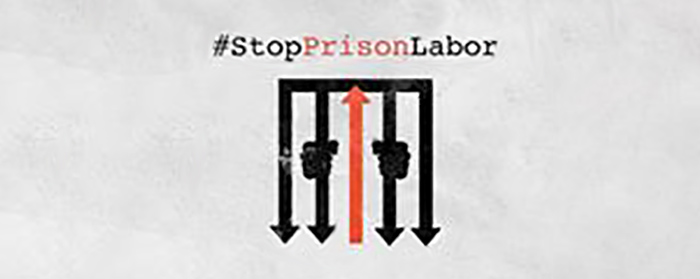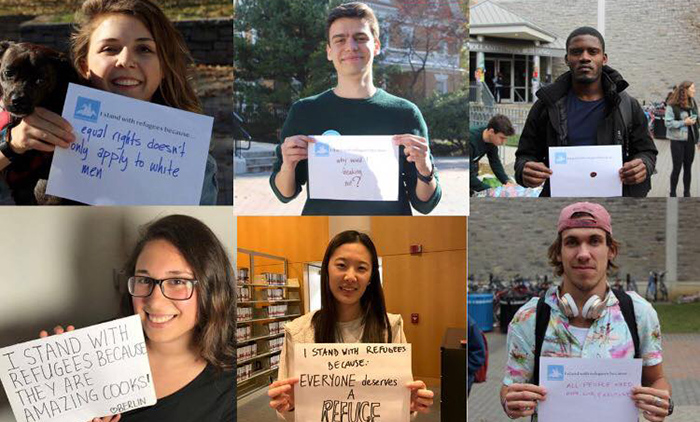A Grassroots Education

Students lobbied in Washington, D.C., as part of a campaign they developed in a course that blended social media marketing and social justice work. Photo courtesy of Alex Bossakov '20.
Students take stock of their own grassroots campaigns
by MaryAlice Bitts-Jackson
The students entered the class with a desire to change the world for the common good. Four months later, they emerged with boots-on-the-ground experience in developing and running a social-media campaign to educate and mobilize others around an issue that’s important to them.
They're enrolled in Social Movements, Social Media and Global Change, a course that introduces the theories and practices behind social-media-fueled movements like #BlackLivesMatter and #BringBackOurGirls, and then challenges them to launch their own campaigns. On Friday, Dec. 1, they presented their results before a panel of campus experts, including administrators, international business & management professors and President Margee Ensign.
DACA Defenders

The student group Defend the Dream partnered with local nonprofits Cumberland Valley Rising and Kappa Alpha Psi to mobilize the campus and surrounding county around the Deferred Action for Childhood Arrivals (DACA) program, an Obama-era initiative that protected unauthorized immigrants who came to the U.S. as children from deportation and allowed them to work legally on American soil. The "Dreamers" who registered for DACA protections are slated to lose their work permits on March 6, and the team worked to inspire citizens to pressure Congress to pass a bill protecting “Dreamers" before that happens. Along the way, they raised funds for local nonprofits devoted to the same cause.
Generating more than 1,500 likes and reaching nearly 21,000 views on Facebook, the group posted regularly about DACA—including tips on how to speak effectively about the issue at the Thanksgiving table—and made information about how to contact members of Congress readily available.
Offline, Defend the Dream held a Nov. 2 rally on campus, testing fellow Dickinsonians’ knowledge of the act and asking people why they #DefendtheDream; group members then posted students' statements of support in public spaces on campus and created videos illustrating wide campus support for the cause. The group also made “Make America Dream Again” baseball hats available for purchase, both as a fundraiser and to help fellow student-activists spark conversations around the cause. They sold every one.
Perhaps most significantly, this group solicited 93 petition signatures. The students plan to continue to work with its two local partners and continue the social-media campaign long after the semester ends.
First, humanize. Then Reform.

The Stop Prison Labor group contends that prison labor, as it is currently in the U.S., is slave labor, as workers can earn less than a dollar per hour, to the benefit of large corporations. The students’ goal: to use Facebook and Instagram accounts to inspire others to advocate for change by boycotting businesses that use prison labor, calling their Congressional leaders and signing a petition.
But first, they had to humanize the incarcerated population in the eyes of the general public—a challenging task—while raising awareness of the issue of current prison-labor practices in the U.S. and about the need for change. So they focused on educating the campus population and used two documentary screenings to get the conversation rolling.
An Oct. 12 on-campus screening of the Netflix documentary 13th generated interest from 229 campus community members on Facebook, but drew only four in-person viewers (bringing with it a valuable lesson in the need to publicize events beyond a mere Facebook posting, the students noted). A week later, the group hosted a better-attended free screening, also in Althouse Hall, of Free CeCe, a documentary about African American trans woman CeCe McDonald, who was released from prison in January 2014. The film was produced by actor-advocate Laverne Cox, who visited Dickinson in 2014.
More than 8,000 visitors to their website received updates on related news, including fall 2017 prison labor strikes. The students also encouraged followers to boycott companies that benefit from prison labor on the 13th day of every month.
#SeeingRefugees

The Refugee Show and Tell Project sought to shape national and international conversations about refugees—and, in so doing, eventually influence related policies. The group began with an introductory video, which drew more than 4,000 views. The students also developed surveys about public attitudes toward refugees, educated followers about opportunities to volunteer and hosted a #SeeRefugees social-media event, during which they encouraged fellow citizens to post a picture of themselves with a written statement about why they stand by refugees.
And while people from as far away as Eastern Europe took part in a #SeeRefugees selfie event online, group members also set up an in-real-life rally on Britton Plaza, where fellow Dickinsonians could learn more about the initiative, participate in group art projects and sign a petition to influence Trump administration policies regarding refugees.
These student-activists forged relationships with the International Service Center (ISC) in Harrisburg, Pennsylvania, and met with area refugees during an annual ISC Thanksgiving luncheon. In mid-November, group members Alexander Bossakov '20, Julie Yao '20 and Norma Jean Park '18, all international studies majors, and Andrea Bisbjerg '18, a double major in international studies and French, traveled to Washington, D.C., to take part in the STAND Lobby Weekend. After attending a workshop and panel sessions with human-rights activists, they campaigned on bills related to mass atrocities and genocide in hopes of influencing Congress members’ votes.
“We thought it was incredibly important to join in on activism that attempts to address the issues at their very core,” said Bossakov. “Although The Refugee Show and Tell Project will continue employing humanization and individualization as a means of emphasizing a common humanity and promoting support through empathy, activism like the one furthered by STAND is a necessary element to what we do.”
Like many of his fellow students enrolled in this course, Bossakov plans to continue the activism this class sparked. He and members of his group are eager to present at a conference with the Undergraduate Network for Research in the Humanities next February. “I am incredibly thankful for having worked with a group of people this semester who were receptive to the idea and were able to help me develop it into something more tangible,” he said.
TAKE THE NEXT STEPS
Published December 5, 2017